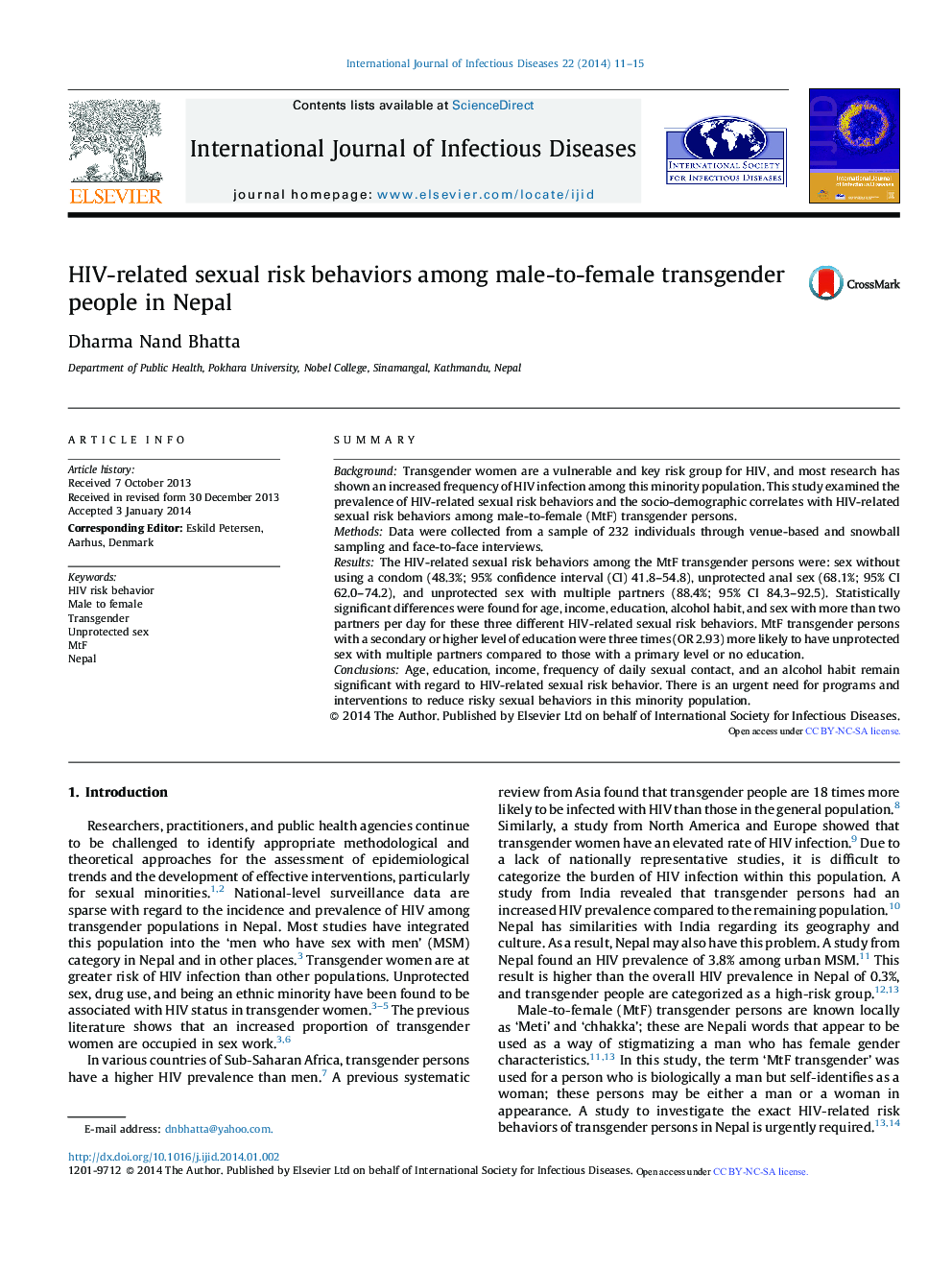| Article ID | Journal | Published Year | Pages | File Type |
|---|---|---|---|---|
| 3362628 | International Journal of Infectious Diseases | 2014 | 5 Pages |
SummaryBackgroundTransgender women are a vulnerable and key risk group for HIV, and most research has shown an increased frequency of HIV infection among this minority population. This study examined the prevalence of HIV-related sexual risk behaviors and the socio-demographic correlates with HIV-related sexual risk behaviors among male-to-female (MtF) transgender persons.MethodsData were collected from a sample of 232 individuals through venue-based and snowball sampling and face-to-face interviews.ResultsThe HIV-related sexual risk behaviors among the MtF transgender persons were: sex without using a condom (48.3%; 95% confidence interval (CI) 41.8–54.8), unprotected anal sex (68.1%; 95% CI 62.0–74.2), and unprotected sex with multiple partners (88.4%; 95% CI 84.3–92.5). Statistically significant differences were found for age, income, education, alcohol habit, and sex with more than two partners per day for these three different HIV-related sexual risk behaviors. MtF transgender persons with a secondary or higher level of education were three times (OR 2.93) more likely to have unprotected sex with multiple partners compared to those with a primary level or no education.ConclusionsAge, education, income, frequency of daily sexual contact, and an alcohol habit remain significant with regard to HIV-related sexual risk behavior. There is an urgent need for programs and interventions to reduce risky sexual behaviors in this minority population.
